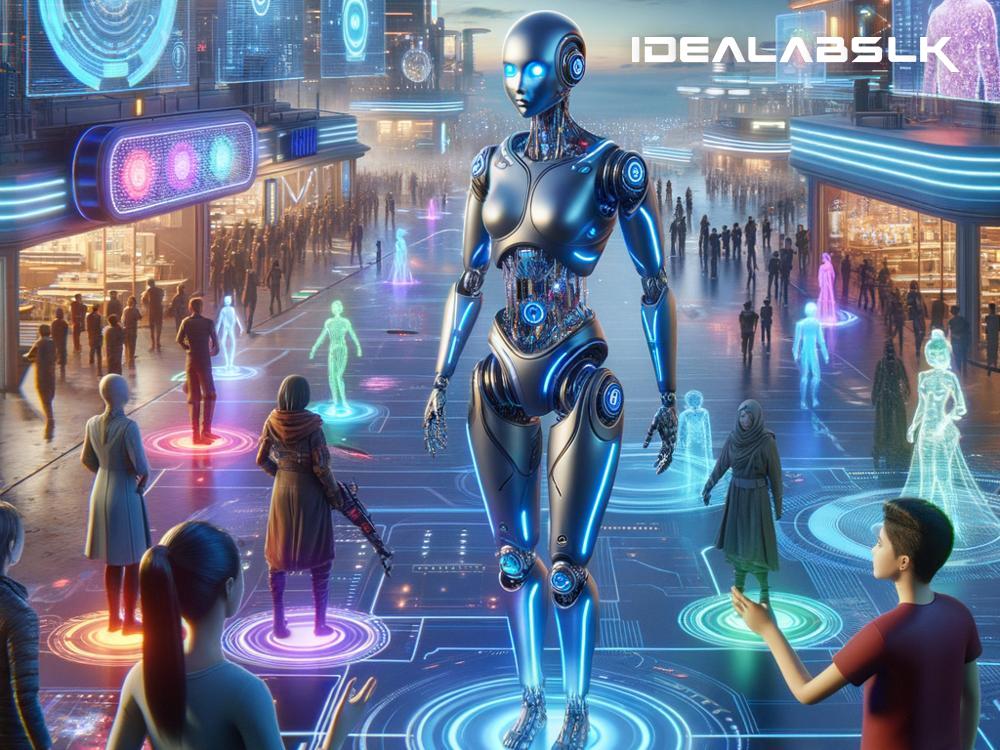How AI Will Revolutionize the Open-World Genre: Smarter AI and Dynamic Environments in 2025
In the realm of video games, the open-world genre has always promised players an escape into large, vibrant realms where they can explore, interact, and live out adventures at their own pace. From the bustling streets of Liberty City in "Grand Theft Auto" to the expansive wilderness of "The Legend of Zelda: Breath of the Wild," open-world games have continually pushed the boundaries of what digital worlds can be. But as we stride towards 2025, Artificial Intelligence (AI) is poised to revolutionize this genre in ways we're just beginning to understand. Here's how smarter AI and dynamic environments will redefine open-world games in the near future.
Smarter NPCs: Making Digital Worlds Feel Alive
Non-Player Characters (NPCs) are the heart and soul of open-world games. They're the townsfolk, the enemies, and the quest givers that players interact with. Until now, NPCs have been somewhat predictable. Enter the era of smarter AI, and NPCs will become significantly more realistic and dynamic.
Imagine walking into a virtual city where every NPC has its daily routine, reacts differently to the player based on previous interactions, and even forms relationships or rivalries with other NPCs. This level of detail will not only make the game world feel more alive but will also provide a unique experience for every player. Your actions will genuinely affect the game's world, leading to endless possibilities and making the game much more immersive.
Dynamic Environments: A World That Grows With You
One of the promises of the future AI-driven open-world games is dynamic environments. These are game worlds that change and evolve based on player actions. Forests that grow or diminish depending on how you interact with the ecosystem, cities that evolve, buildings that age, and even weather systems that react to the in-game economy.
Gone will be the days when you revisit an area only to find it unchanged despite your heroic or nefarious actions. By 2025, AI will enable environments to be as alive as the NPCs inhabiting them, making for a truly integrated game experience. Actions will have real consequences, adding a layer of depth and realism that has been previously unattainable.
Adaptive Storytelling: Your Own Unique Tale
Imagine a game that crafts its story around your actions, decisions, and play style. This is the potential of AI in open-world games. Adaptive storytelling means that the game's narrative can shift and change based on how you play. Do you prefer diplomacy over combat? The AI will notice and adapt the storyline to fit your style, potentially opening up peaceful resolution paths to conflicts. Conversely, if you’re more of a warrior, the game will offer more combat-focused quests and storylines.
This level of personalization means that no two playthroughs would be the same, significantly enhancing replayability. Your choices will not just affect the immediate outcome but could have long-term impacts on the game world and how its story unfolds.
Seamless Integration of Online Elements
AI will also revolutionize how online elements are integrated into the open-world genre. Imagine an AI that could seamlessly integrate the actions of thousands of players into a game’s narrative and world. This could lead to dynamic events that players could participate in, affecting the game world at a much larger scale and making the experience more interactive and community-driven.
The Challenges Ahead
While the promise of AI-driven advancements in the open-world genre is immense, it's not without its challenges. Balancing realism with fun, ensuring that AI-driven narratives don't become too predictable, and managing the technological and computational demands of such detailed worlds are just a few of the hurdles developers will face.
Moreover, there's the ethical consideration of creating AI that’s too realistic, potentially blurring the lines between reality and gaming for some players. Developers will need to tread carefully, ensuring that advancements enhance the gaming experience without leading to negative consequences.
Looking Forward
As we look towards 2025, it's clear that AI will play a pivotal role in the evolution of open-world games. From smarter NPCs and dynamic environments to adaptive storytelling and enhanced online integration, the potential for truly immersive and unique gaming experiences is just on the horizon. As developers overcome challenges and push the limits of what's possible, we're poised on the brink of a new era for the open-world genre. One thing is sure – the future of gaming looks incredibly exciting!

